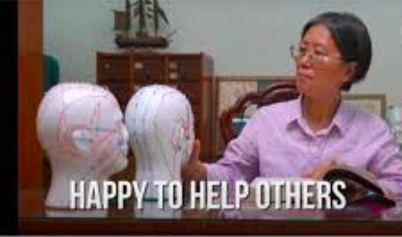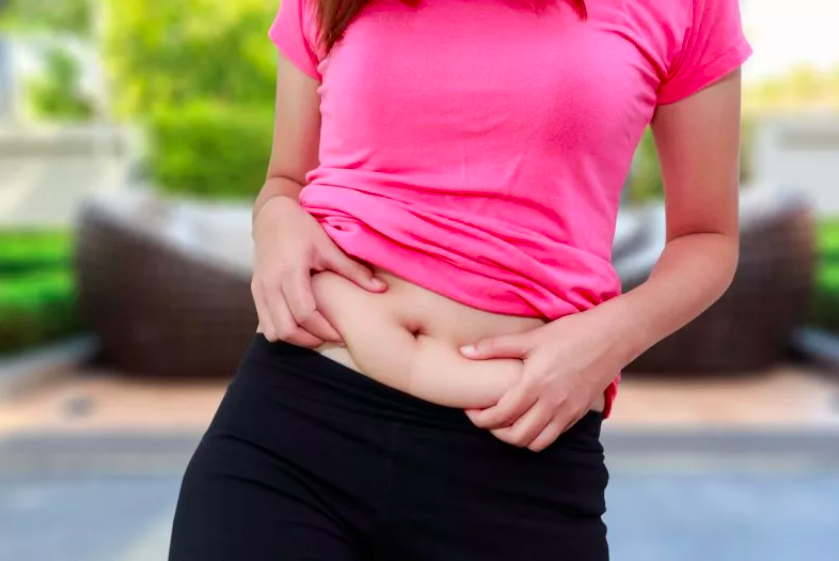Trending Stories
“Fathers’ Exposure to ‘Forever Chemicals’ Could Affect Children’s Health”

The Impact of PFAS on Health
PFAS are a large group of human-made chemicals used in a variety of industries since the 1940s. They are known for their resistance to water, grease, and stains, which makes them useful in numerous products such as nonstick cookware, water-repellent clothing, stain-resistant fabrics, firefighting foams, and food packaging. According to the U.S. Agency for Toxic Substances and Disease Registry, these “forever chemicals” have been linked to various health issues, including increased cholesterol, increased blood pressure, lessened immune function, reproductive issues, and an increased risk of certain cancers. They have also been linked to developmental effects in infants and children.
Research Findings
Now, however, this study marks the first time that these chemicals have been found to affect the health of mice offspring via the sperm of their father. “PFAS research is important, especially in Michigan,” study co-author Michael C. Petriello, an assistant professor at Wayne State University, said in the statement. “It has been recently in the news since the EPA [Environmental Protection Agency] is finally starting to regulate PFAS chemicals and include them as part of the Clean Water Act,” he said.
Impact on Offspring
As the researchers explain in the paper, the PFAS chemicals alter the methylation of the mice’s sperm, leading to altered expression of genes affecting the liver and fat in the offspring. This means that fathers exposed to PFAS may have offspring with epigenetic issues caused by the forever chemicals. Epigenetics is the study of changes in gene activity that do not involve alterations to the underlying DNA sequence, with these changes instead impacting how genes are turned on or off.
Conclusion
While this research was done on mice, it implies that similar impacts may be had on human sperm and therefore epigenetic effects may be seen in human offspring. “I hope these findings promote an appreciation of male health on their offspring’s development,” said Pilsner. “In addition to female partners, clinical doctors advising male partners that their pre-conception health impacts their children’s health would be a significant change to positively impact future generations.”
FAQs
What are PFAS chemicals?
PFAS chemicals are per- and polyfluorinated alkyl substances known for their resistance to water, grease, and stains.
How does PFAS affect offspring?
PFAS exposure in fathers can lead to altered gene expression in offspring, affecting their liver and fat metabolism.
Are PFAS found in humans?
Yes, PFAS are detectable in humans globally, including in water, air, soil, and living beings.
What are the health risks of PFAS?
PFAS have been linked to increased cholesterol, blood pressure, immune issues, reproductive problems, and certain cancers.
How can individuals reduce PFAS exposure?
Avoiding products containing PFAS, such as nonstick cookware and stain-resistant fabrics, can help reduce exposure.
Are PFAS chemicals harmful to humans?
Yes, PFAS have been linked to various health issues, including increased cholesterol, blood pressure, immune function, reproductive issues, and an increased risk of certain cancers.
How can individuals reduce their exposure to PFAS?
Individuals can reduce exposure by avoiding products containing PFAS, such as nonstick cookware, water-repellent clothing, and stain-resistant fabrics.
Can PFAS affect the environment?
Yes, PFAS can persist in the environment and have been found in water, air, soil, and living organisms, including humans.
What is being done to regulate PFAS?
Regulatory agencies, including the EPA, are starting to regulate PFAS chemicals and include them as part of environmental regulations.
What are the long-term effects of PFAS exposure?
Long-term effects of PFAS exposure may include chronic diseases, impacts on inflammation and the immune system, a
well as reproductive outcomes, and offspring metabolism.
Additional Information
The Global Presence of PFAS
Due to their extensive use and durability, PFAS are found globally, including in remote areas, and are detectable in water, air, soil, and living beings, including humans. Some recent studies found that over half of U.S. tap water contains some PFAS and that most Americans have PFAS inside their bodies.
Implications for Human Health
While this research was conducted on mice, it suggests that similar impacts may occur in humans. The findings highlight the importance of considering male health in offspring development. Clinical doctors advising male partners about the impact of pre-conception health on their children’s health could lead to positive changes for future generations.
[Conclusion
The study on the impact of PFAS on offspring through paternal exposure sheds light on a previously overlooked aspect of environmental health. It emphasizes the need for further research and awareness about the effects of these chemicals on human health. As regulations on PFAS increase, understanding their implications becomes increasingly vital.
References:
By incorporating these additional details, the article provides a more comprehensive overview of the impact of PFAS exposure on offspring and highlights the need for further research and awareness.
Trending Stories
Can Supplements Fix Belly Fat? Experts Weigh in on the “Cortisol Pouch” Myth
Trending Stories
Sister Regina Liu: Empowering Health Through Acupuncture

Sister Regina Liu: Empowering Health Through Acupuncture
In the bustling world of healthcare, Sister Regina Liu stands out as a beacon of holistic healing. Her journey into the world of acupuncture is not only inspiring but also transformative for the countless individuals she has treated.
Through her dedication, Sister Regina has brought traditional Chinese medicine to the forefront, offering an alternative and complementary approach to modern medical practices.
The Journey of Sister Regina Liu
Sister Regina Liu’s path to becoming a renowned acupuncturist began with her deep-rooted interest in holistic health. Born into a family that valued traditional Chinese medicine, Sister Regina was exposed to the benefits of acupuncture from a young age. Her early fascination turned into a lifelong passion as she pursued formal education and training in the field.
Acupuncture: Bridging Ancient Wisdom and Modern Health
Acupuncture, a practice with origins in ancient China, involves inserting thin needles into specific points on the body to balance the flow of energy or “qi.” Sister Regina Liu has mastered this ancient art, using it to address a wide range of health issues.
From chronic pain to stress management, her expertise has provided relief to many who had exhausted conventional treatment options.
Impact on Community Health
Sister Regina’s impact extends beyond individual treatments. She has been instrumental in educating the community about the benefits of acupuncture, breaking down misconceptions, and making the practice more accessible.
Her workshops and seminars have enlightened many about the holistic approach to health, emphasizing the interconnectedness of body, mind, and spirit.
Success Stories and Testimonials
The success stories of Sister Regina’s patients are a testament to her skill and dedication. Many individuals who had lost hope found solace in her treatments.
For instance, Maria, a long-time sufferer of migraines, experienced significant relief after just a few sessions with Sister Regina. Her story is just one of many that highlight the transformative power of acupuncture under Sister Regina’s care.
Challenges and Triumphs
Like any journey, Sister Regina’s path was not without challenges. Integrating acupuncture into mainstream healthcare faced resistance initially.
However, her perseverance and the undeniable results of her treatments gradually won over skeptics. Today, Sister Regina is not only respected in the field of acupuncture but also in the broader medical community.
The Science Behind Acupuncture
While acupuncture is rooted in ancient practices, modern science has begun to unravel the mechanisms behind its effectiveness. Studies have shown that acupuncture can stimulate the release of endorphins, the body’s natural painkillers, and improve blood circulation.
These scientific validations have further cemented acupuncture’s place in contemporary healthcare, thanks in part to advocates like Sister Regina Liu.
Acupuncture in Modern Healthcare
Sister Regina’s work exemplifies how traditional practices can complement modern medicine. Hospitals and clinics increasingly incorporate acupuncture into their treatment plans, recognizing its benefits in pain management, mental health, and overall well-being. This integration signifies a broader acceptance and understanding of holistic health practices.
Future Vision
Looking ahead, Sister Regina Liu envisions a future where acupuncture and traditional Chinese medicine are fully integrated into the global healthcare system. She continues to advocate for research, education, and policy changes that support the inclusion of holistic practices in mainstream medicine.
How to Get Started with Acupuncture
For those new to acupuncture, Sister Regina offers practical advice on getting started. She recommends finding a certified acupuncturist, understanding the treatment process, and maintaining an open mind. Her guidance helps demystify acupuncture, making it more approachable for newcomers.
Conclusion
Sister Regina Liu’s journey in empowering health through acupuncture is a remarkable tale of dedication, resilience, and success. Her contributions have not only alleviated individual suffering but also enriched the broader understanding of holistic health. As acupuncture continues to gain recognition, Sister Regina’s legacy will undoubtedly inspire future generations of healers.
FAQs
1. What conditions can acupuncture treat?
Acupuncture can address various conditions, including chronic pain, migraines, stress, anxiety, digestive issues, and more. It is also used to support overall wellness and balance.
2. Is acupuncture safe?
Yes, when performed by a certified and experienced acupuncturist, acupuncture is safe. It involves using sterile, single-use needles and adhering to proper hygiene practices.
3. How many sessions are needed to see results?
The number of sessions varies depending on the condition and individual response. Some may experience relief after one session, while others may need multiple treatments.
4. Does acupuncture hurt?
Acupuncture needles are very thin, and most people feel minimal to no discomfort. Some may feel a slight tingling or warmth at the needle site.
5. How do I find a qualified acupuncturist?
Look for acupuncturists who are certified by recognized professional organizations and have positive patient reviews. Personal recommendations and consultations can also help in making an informed choice.
References
Trending Stories
In 2 Shape Gym Unveils Major Expansion in Stourport
-

 Trending Stories1 year ago
Trending Stories1 year agoCDC: 1 in 4 Americans Still COVID-Free by End of 2022
-

 Health8 months ago
Health8 months agoHow Do Pawpaw Seeds Support Cardiovascular Health?
-

 Health5 years ago
Health5 years agoMeghan Trainor Shares Motivational New Song ‘Blink’
-

 Health2 years ago
Health2 years agoHow Long Does Monkey Pox Last Before It Surfaces in the Body?
-

 Health3 years ago
Health3 years agoWhat Causes Swollen Body? Understanding Edema and its Triggers
-

 Health3 years ago
Health3 years agoNutrition and the Importance of a Fitness Program – 3 Things to Know
-

 Health3 years ago
Health3 years ago5 Weird Reasons Why Pimples Disappear After Marriage
-

 Health3 years ago
Health3 years agoHealth Benefits Of Pawpaw Seed? 7 Things To Know







